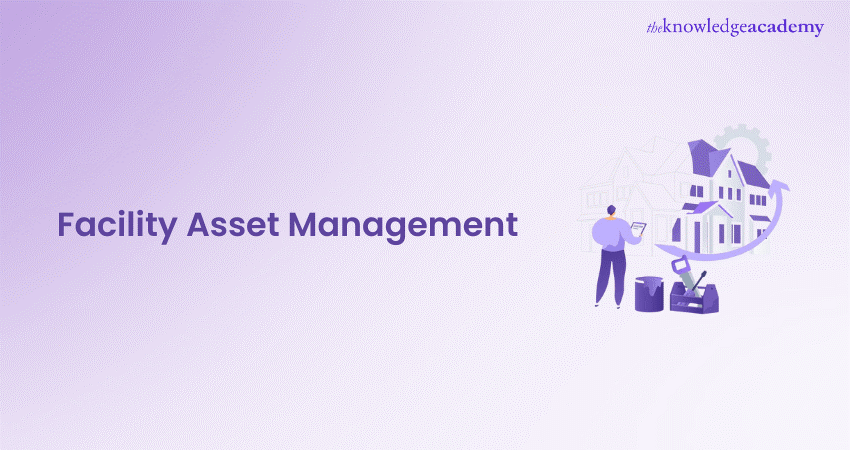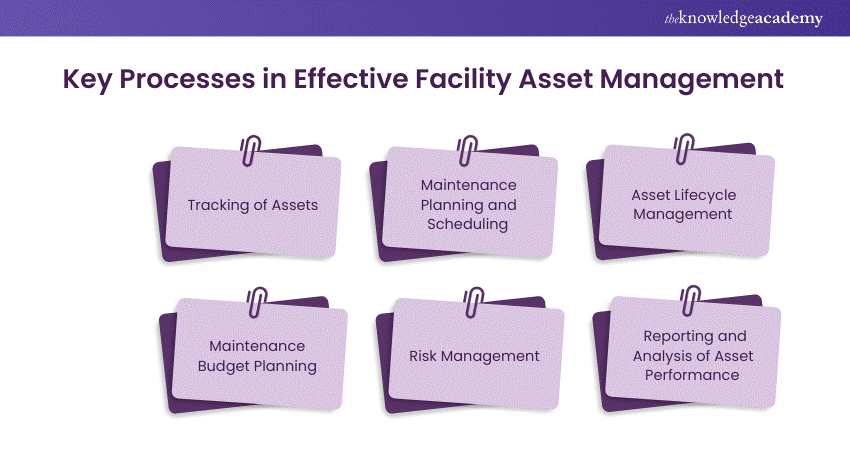We may not have the course you’re looking for. If you enquire or give us a call on +91-181-5047001 and speak to our training experts, we may still be able to help with your training requirements.
Training Outcomes Within Your Budget!
We ensure quality, budget-alignment, and timely delivery by our expert instructors.

Facility Asset Management involves the meticulous tracking, management, and maintenance of an organisation’s essential assets. By optimising these processes, businesses can significantly reduce operating costs and boost profitability, leading to more sustainable and efficient operations.
This practice ensures that all physical assets crucial to a company’s seamless functioning are well-maintained and managed. In this blog, we delve into the intricacies of Facility Asset Management and highlight its pivotal role in driving profitable and smooth business operations.
Table of Contents
1) What is Facility Asset Management?
2) Why Facility Asset Management is Required?
3) Key Processes in Effective Facility Asset Management
4) How Facility Mangement Companies Track Facility Assets?
5) Differentiating Facility Management and Asset Management
6) Conclusion
What is Facility Asset Management?
Facility Asset Management involves overseeing the physical assets of an organisation that are essential for business operations. The primary objectives of Facility Asset Management include:
a) Increasing the lifespan of equipment
b) Minimising operational costs
c) Better utilisation of assets
d) Enhancing efficiency
e) Improving safety measures
Facility Asset Management encompasses various assets, including:
a) Facility-related assets: Elevators, lighting, and air conditioning systems
b) Personnel-related assets: Safety equipment, uniforms, and vehicles
c) IT assets: Software licenses, copiers, and printers
Why Facility Asset Management is Required?
Facility Asset Management is essential for optimising the utility, function, and value of an organisation's assets, leading to maximised returns on investment. By systematically managing assets like machinery, HVAC systems, and IT equipment, businesses can improve efficiency, reduce downtime, and extend asset lifespan.
This management approach helps monitor and reduce operational costs, enabling companies to allocate resources more effectively and maintain profitability. It also provides valuable insights for strategic decision-making, guiding choices on asset acquisition and upgrades.
Moreover, Facility Asset Management ensures safety and compliance by preventing accidents and adhering to industry regulations. It fosters a secure workplace and enhances the organisation's reputation. Additionally, sustainable practices within asset management contribute to environmental responsibility by minimising waste and optimising resource use. Overall, Facility Asset Management is indispensable for ensuring efficient, profitable, and sustainable business operations.
Key Processes in Effective Facility Asset Management
To achieve optimal outcomes and utilise facility assets effectively, consider the following steps:

1) Track Assets
Tracking involves monitoring the condition and performance of all company assets. This process aids in better utilisation and maintenance, improving business operations.
2) Maintenance Planning and Scheduling
Regular maintenance is crucial for seamless operations and prolongs asset lifespan. Systematic planning and scheduling ensure timely asset upkeep.
3) Asset Lifecycle Management
Asset Lifecycle Management oversees assets from purchase to disposal, optimising performance and facilitating effective replacement planning.
4) Maintenance Budget Planning
Budget planning estimates expenditures for replacements, maintenance, and repairs, ensuring sustainable operations and preventing budget overruns.
5) Risk Management
Risk Management involves tracking, predicting, and preventing potential risks, such as asset malfunctions and breakdowns, reducing unexpected expenditures and improving workflow.
6) Reporting and Analysis of Asset Performance
Data on asset performance highlights potential risks and areas for improvement, facilitating quick decisions on new investments and asset replacements.
Learn to manage the product development lifecycle with our Product Management Course -Join now!
How Facility Mangement Companies Track Facility Assets?
Facility Management companies primarily use software to track assets and collect data for effective management. The management process involves:
1) Collecting Facility Data
This includes gathering information on asset names, categories, model numbers, and performance.
2) Asset Maintenance
Asset maintenance ensures optimal performance and cost-effective operations, enhancing asset longevity.
3) Strategic Planning for Facilities
Strategic planning prioritises assets based on importance, efficiency, and effectiveness, following data analysis.
Learn essential logistics principles with our Logistics Management Training- Register Today!
Differentiating Facility Management and Asset Management
While Facility Management and Asset Management share similarities, they have distinct goals and focuses.
Asset Management concentrates on the administration, operation, and handling of physical assets like HVAC systems, elevators, and safety gear. It monitors utilisation, maintenance costs, and ownership costs.
Conversely, Facility Management takes a holistic approach to oversee the entire physical environment, including human resources, worker safety, sustainability, and customer satisfaction.
Here's a table differentiating between Facility Management and Asset Management based on their goals and focus areas:
|
Aspect |
Asset Management |
Facility Management |
|
Primary Focus |
Physical assets like HVAC systems and elevators |
Entire physical environment |
|
Key Responsibilities |
Manage asset utilisation and costs Optimise asset performance
|
Oversee human resources and safety Ensure sustainability and customer satisfaction
|
|
Goals |
Extend asset lifespan Minimise maintenance costs
|
Promote employee well-being Maintain efficient operations |
|
Scope |
Specific to individual assets |
Comprehensive facility-wide approach |
|
Approach |
Financial returns and asset efficiency |
Organisational effectiveness and safety |
|
Impact on Organisation |
Direct impact on asset-related costs |
Indirect impact on business efficiency |
Conclusion
We hope this blog has clarified Facility Asset Management and its importance for sustainable business operations. Facility Asset Management ensures optimal asset utilisation, business profitability, and a safe working environment. We also discussed the differences between Asset Management and Facility Management, highlighting their unique goals and performance parameters.
Learn effective communication strategies with our Facilitation Skills Training. Sign up now!
Frequently Asked Questions

The asset lifecycle of a facility encompasses the entire lifespan of an asset, from purchase to replacement or disposal. It includes utilisation, maintenance, and monitoring.

An Asset Management Plan should include:
a) Asset inventory
b) Financial objectives
c) Risk assessment
d) Asset management strategy
e) Task timeframe
f) Task prioritisation

The Knowledge Academy takes global learning to new heights, offering over 30,000 online courses across 490+ locations in 220 countries. This expansive reach ensures accessibility and convenience for learners worldwide.
Alongside our diverse Online Course Catalogue, encompassing 19 major categories, we go the extra mile by providing a plethora of free educational Online Resources like News updates, Blogs, videos, webinars, and interview questions. Tailoring learning experiences further, professionals can maximise value with customisable Course Bundles of TKA.

The Knowledge Academy’s Knowledge Pass, a prepaid voucher, adds another layer of flexibility, allowing course bookings over a 12-month period. Join us on a journey where education knows no bounds.

The Knowledge Academy offers various Industry Training, including Facilities Management Training, Product Management Training and Supply Chain Management Training. These courses cater to different skill levels, providing comprehensive insights into Facility Management
Our Business Skills Blogs cover a range of topics related to Facilities Management, offering valuable resources, best practices, and industry insights. Whether you are a beginner or looking to advance your Facilities Asset Management skills, The Knowledge Academy's diverse courses and informative blogs have got you covered.
Upcoming Business Skills Resources Batches & Dates
Date
 Facilities Management Training
Facilities Management Training
Fri 24th Jan 2025
Fri 28th Feb 2025
Fri 30th May 2025
Fri 15th Aug 2025
Fri 26th Sep 2025
Fri 31st Oct 2025







 Top Rated Course
Top Rated Course



 If you wish to make any changes to your course, please
If you wish to make any changes to your course, please


